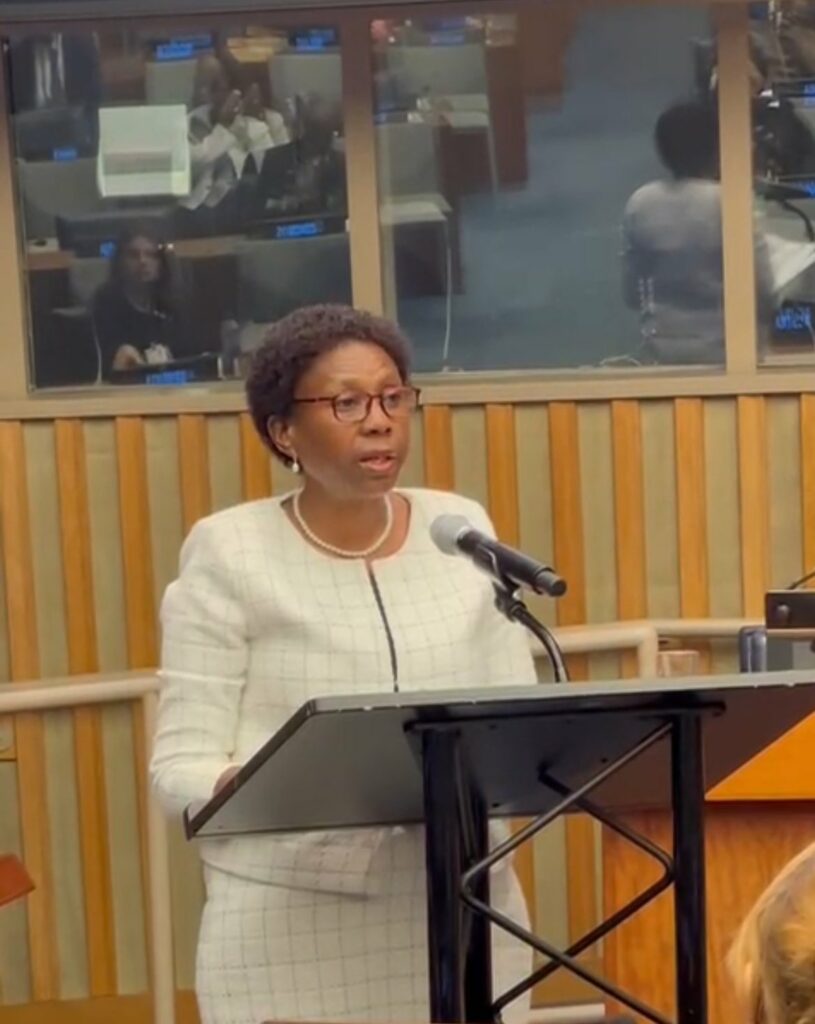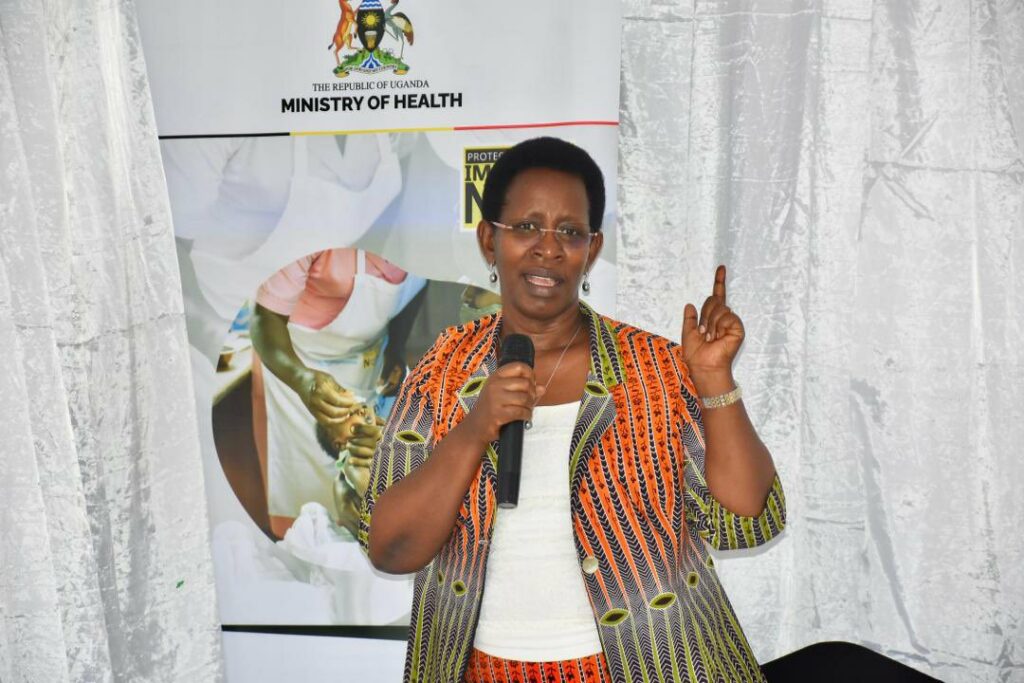
 Tiger FM
Tiger FM

 Tiger FM
Tiger FM
20 November 2024, 11:43 am
By Ronald Ssemagonja
Minister of Health, Hon. Jane Ruth Aceng, speaking to participants at Serena Hotel in Kampala during the celebrations of 50 years of the Expanded Programme on Immunisation (EPI), said the story of Uganda’s immunisation efforts is one of commitment, innovation, and partnerships that have transformed the health and well-being of the people. Immunisation has been at the forefront of disease prevention, saving millions of lives and significantly improving child survival rates.
She stated that the 1980s marked a critical turning point for public health in Uganda with the launch of the EPI. The programme targeted six vaccine-preventable diseases: pertussis (whooping cough), measles, tuberculosis, diphtheria, and tetanus. At the time, immunisation coverage was low, and accessibility was limited, especially in rural and underserved areas. However, the seeds of a stronger health system were planted, and the government remained committed to expanding routine immunisation services to all Ugandan children.
Regarding progress, she said that during the 1990s, Uganda saw significant advances as the country scaled up immunisation services. “With improved cold chain systems and a growing number of health facilities providing vaccines, we began reaching more children and communities.
This decade also saw the introduction of new vaccines, such as those for hepatitis B and Haemophilus influenzae type B, addressing additional critical health challenges,” she remarked. Despite this progress, challenges in access and coverage remained, particularly for children in hard-to-reach areas. This gap underscored the importance of building a resilient and equitable immunisation system.
The turn of the millennium brought about one of the most transformative partnerships in Uganda’s immunisation story: The Global Alliance for Vaccines and Immunisation (GAVI). GAVI’s support, starting in the early 2000s, has been instrumental in strengthening Uganda’s immunisation services.
“This collaboration enabled the introduction of life-saving vaccines, such as the pneumococcal vaccine, which prevents pneumonia, and the rotavirus vaccine, which combats diarrhoeal diseases. Both are leading causes of death among children under five years of age,” she stated.
The Ministry of Health is committed to overcoming challenges by exploring different avenues. The past decade has been a period of unprecedented success in routine immunisation. Uganda introduced the Human Papillomavirus (HPV) vaccine in 2015, protecting young girls against cervical cancer.
Additionally, with the global push for universal health coverage, Uganda focused on reaching every child with vaccines, especially those in rural and underserved regions. The country is also set to introduce the malaria vaccine into the routine immunisation schedule in April 2025.
One of the most significant impacts of GAVI’s support has been in strengthening Uganda’s health systems. From cold chain infrastructure to data management, GAVI has helped build the foundation for sustainable immunisation services. Health worker training, community engagement, and innovations in service delivery have all contributed to improving vaccine coverage rates, particularly in hard-to-reach and underserved populations.
Through GAVI’s health systems strengthening grants, Uganda has enhanced its ability to plan, monitor, and deliver vaccines efficiently. According to the minister, this has played a crucial role in maintaining high coverage rates and addressing vaccine-preventable diseases across the country.

The Permanent Secretary of the Ministry, Dr Diana Atwine, also delivered her statement. “I would like to extend my heartfelt gratitude to all stakeholders who have contributed to Uganda’s immunisation achievements over the past five decades. Our development partners, including the World Health Organisation, UNICEF, GAVI, PATH, and many others, have provided essential technical and financial support, enabling us to introduce new vaccines and enhance our healthcare systems,” she said.
Additionally, the Permanent Secretary expressed that the Ministry owes a debt of gratitude to communities and local leaders who continue to play a vital role in promoting immunisation and encouraging parents to ensure their children are fully vaccinated. “By working together with the Ministry, Uganda will continue to build on the successes so far and sustain immunisation efforts for future generations,” she said.

Dr Henry Mwebesa also added his voice to that of the Minister and the Permanent Secretary, stating that immunisation has been pivotal in significantly reducing child mortality and morbidity rates. It has also contributed to the decline in outbreaks of diseases like polio, measles, and neonatal tetanus.
Over the past four decades, Uganda has made remarkable progress in its immunisation efforts. From the early days of the EPI in the 1980s, which targeted six childhood diseases, to today’s comprehensive schedule that includes vaccines for Hepatitis B, pneumococcal disease, rotavirus, and Human Papillomavirus, Uganda has steadily expanded its immunisation services. GAVI CEO, Dr Sania Nishtar, urged people to trust vaccinations because they are of good quality, and misinformation should be fought.